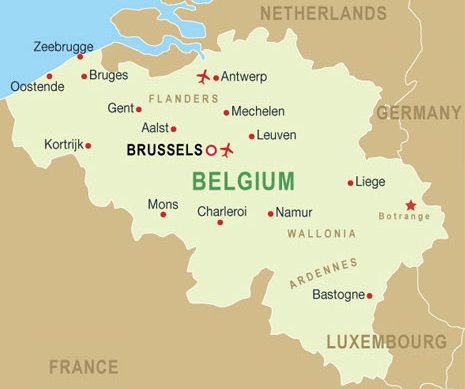Conference marks 70th anniversary of Molotov-Ribbentrop pact
 Brussels - The Baltic states pushed on Wednesday for an international debate on the notorious 1939 Molotov-Ribbentrop Pact - which handed power over the region to Nazi Germany and the Soviet Union - as they opened a conference at the European Parliament in Brussels.
Brussels - The Baltic states pushed on Wednesday for an international debate on the notorious 1939 Molotov-Ribbentrop Pact - which handed power over the region to Nazi Germany and the Soviet Union - as they opened a conference at the European Parliament in Brussels.
The issue is controversial because Russia, the EU's biggest neighbour and its largest supplier of fuel, says that attempts to highlight the pact falsify history and glorify Nazism.
"Conference organisers believe that the 70th anniversary of the Molotov-Ribbentrop Pact, which divided Europe and opened the door to World War II, must be properly marked at the European level," organisers said in a statement.
The secret protocols of the pact divided eastern Europe into "spheres of influence," allowing Hitler to invade Poland and granting Latvia, Lithuania, Estonia and Finland to Stalin.
Some politicians in the Baltic states argue that Russia, the legal successor to the USSR, should pay them compensation for the damage caused by the subsequent 50 years of Soviet occupation.
Russia, which sees the USSR as the state which liberated the Baltics from Nazism, rejects such claims and accuses the Baltics of Nazi sympathies.
Conference organizers on Wednesday dismissed that claim, saying that their purpose was to "debate further steps needed to safeguard the historical memory and to deepen public awareness about the crimes of the two largest totalitarian regimes of the 20th century."
The conference was set to be attended by members of the European Parliament and officials from Estonia, Latvia, Lithuania, Poland and central European member states. Officials from the EU's executive, the European Commission, and the Swedish government, which currently holds the bloc's rotating presidency, were also to attend.
On Tuesday, several hundred people in Riga laid wreaths at a Soviet-era monument to commemorate what they saw as the city's liberation by the Red Army.
In 2007, ethnic Russians rioted in Tallinn to protest at the relocation of a Soviet war memorial. (dpa)